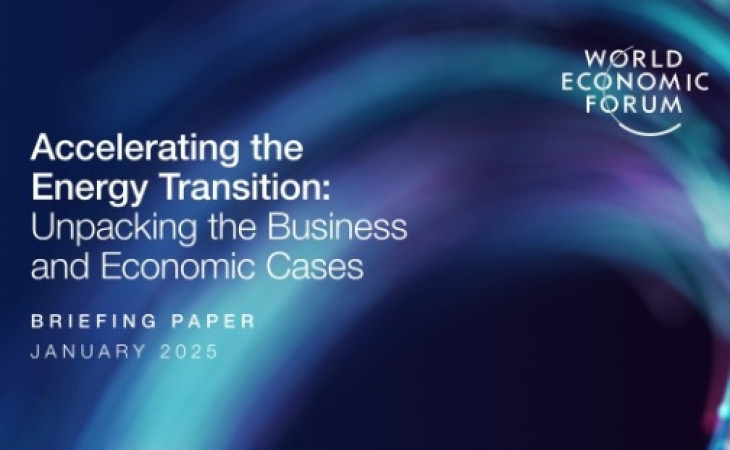
Follow India Renewable Energy News on WhatsApp for exclusive updates on clean energy news and insights
World Economic Forum's White Paper on Accelerating the Energy Transition
Feb 01, 2025
The World Economic Forum (WEF) has released a critical white paper titled "Accelerating the Energy Transition: Unpacking the Business and Economic Cases" as Day 1 of Davos 2025 commences.
The paper highlights the urgent need for scaling up advanced energy solutions to achieve net-zero emissions by 2030, outlining the unprecedented growth required in key energy sectors. According to the report, carbon capture and storage (CCS) capacity must increase 20-fold, energy storage 35-fold, clean hydrogen production 70-fold, and sustainable aviation fuel (SAF) 190-fold to meet net-zero goals.
In 2024, global energy investments exceeded Rs3 trillion, with Rs2 trillion allocated to clean technologies. However, to build an energy system compatible with a 1.5°C climate pathway, annual investments need to surge to over $5 trillion by 2030. This is a $3 trillion funding gap that can only be closed by making clean technologies profitable for businesses.
The white paper emphasizes that up to 90% of the necessary funding across energy demand, supply, and finance must come from international private capital in most countries to bridge this gap. The paper stresses the importance of aligning the economic and business cases for the energy transition to drive momentum and unlock the necessary investments.
It identifies key enablers for scaling up the transition and offers actionable strategies for policymakers and businesses to accelerate the adoption of clean energy solutions. These strategies are aimed at incentivizing private sector investment and building a sustainable, resilient energy system capable of meeting the global emissions reduction targets.
The WEF’s report serves as a crucial call to action for governments, businesses, and investors to increase their efforts and investments in clean technologies, ensuring the world is on track to meet climate targets while securing a prosperous, low-carbon future.